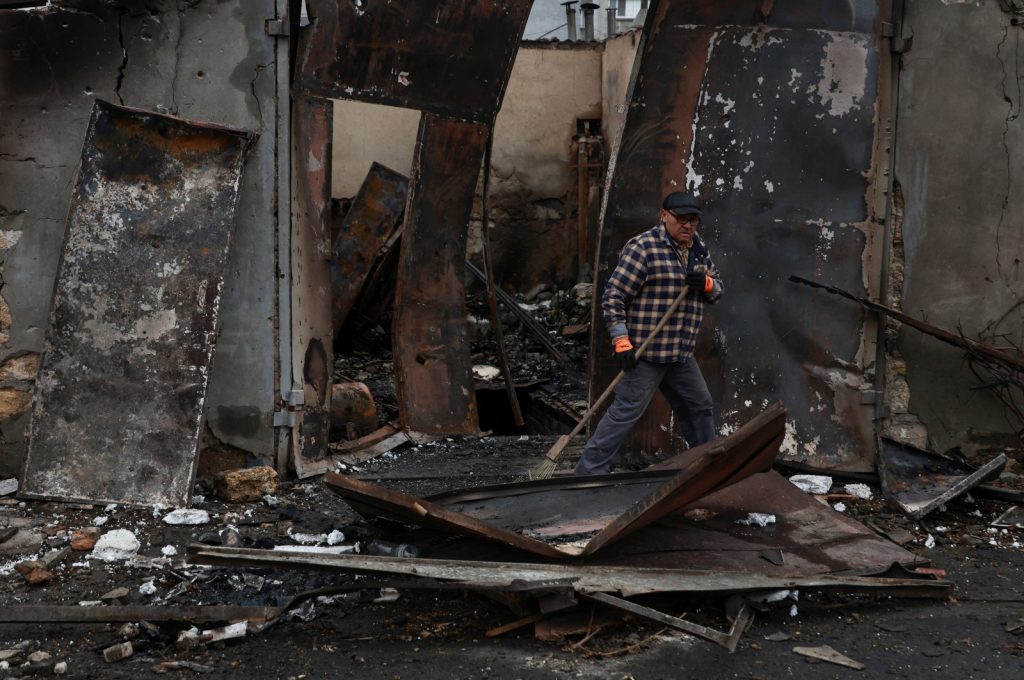Donald Trump’s victory in the U.S. elections has increased hopes of ending the Russian-Ukrainian conflict, Türkiye’s top diplomat said.
“Türkiye supports the territorial integrity of Ukraine and our position on Crimea reflects this. However, we do not see this war as beneficial for either side,” Hakan Fidan told the Turkish newspaper Milliyet.
From the first day of the conflict, Türkiye has insisted that diplomacy should be a priority, the minister recalled, adding that this has been conveyed to U.S. and Western officials many times.
“We have used all means of diplomacy to bring the parties to the negotiating table. In the first days of the war, we did this in Antalya, then in Istanbul. Following the technical talks in Istanbul, we were very close to peace,” Fidan noted.
Russia started its “special military operation” in Ukraine in February 2022, saying it had to help and protect the eastern regions of Donetsk and Luhansk that have been fighting against Kyiv since 2014.
While several countries, including Türkiye, have acted as intermediaries to facilitate potential peace discussions, these talks have faced significant setbacks, often stalling or breaking down.
Türkiye has been a key player in mediation efforts, including during the initial 2022 negotiations, which resulted in agreements on critical issues such as grain exports.
But despite occasional proposals from both sides, broader peace talks have failed to progress, largely due to incompatible demands and underlying distrust.
Last Friday, President Recep Tayyip Erdoğan similarly said the war in Ukraine could end easily if Trump’s administration takes a solution-based approach, arguing that efforts of the Western countries led by the U.S. to end the war in Ukraine would accelerate a solution.
Fidan reiterated that “Türkiye is ready to mediate efforts to achieve a fair and lasting peace within the formats and parameters acceptable to both sides.”
Turkish-US ties
On Turkish-U.S. relations under a second Trump term, Fidan said that “the countries continue and enhance their high-level allied dialogue regardless of who is in power” in the United States.
The “strategic mechanism aimed at solving problems between Türkiye and the U.S.” will also continue to work, and Ankara expects the countries to “resolve issues jointly, constructively and comprehensively,” which Fidan thinks “the new U.S. administration is ready for.”
NATO allies Türkiye and the U.S. have had tepid ties since a decline from the 1990s onward.
The pair have settled into an uneasy, if formulaic, alliance where they agree to disagree on many issues while keeping dialogue open.
Several issues sour the climate, including Türkiye’s removal from the F-35 fighter jet program in 2019, Washington’s alliance with the YPG, Ankara’s ties with Moscow and refusal to join Western sanctions against Russia and U.S. harboring of Gülenist Terror Group (FETÖ) members.
Syrian front
Erdoğan expects Trump’s return will reignite Turkish-U.S. dialogue channels, largely ignored during outgoing Joe Biden’s presidency, while bringing much-needed momentum to the resolution of other Middle East conflicts like Israel’s war on Gaza and PKK/YPG terrorists along the Turkish border in Syria.
The PKK took up arms against the Turkish state in 1984 to achieve so-called Kurdish self-rule in southeastern regions and is designated a terrorist organization by Ankara, as well as the United States and the European Union. The YPG is its Syrian offshoot that has occupied oil-rich Syrian territories since 2015.
Washington calls the YPG its ally under the pretext of driving out remaining Daesh terrorists, something Ankara considers as support of a threat against its national security. Turkish cross-border airstrikes have targeted the YPG in the region since 2016.
At the time, Trump showed a willingness to address Türkiye’s concerns over the YPG, promising to remove it from the Turkish border area but later failing to do so.
“We are constantly reminding our American counterparts that they need to stop the cooperation they have with the terrorist organization in Syria,” Fidan said.
“Our contacts on this issue have increased. We see that the U.S. side is keen on more talks and negotiations, too,” he added.
On Sunday, Erdoğan said Türkiye could mount a new offensive against PKK/YPG terrorists in northern Syria to create new safe zones along its border after saying on Friday that he would discuss a possible U.S. troop withdrawal from Syria with Trump.
Fidan stressed the urgent need for peace in both the region and, specifically, in Syria.
“It’s obvious what must be done to make headway on the issue,” Fidan said, listing the removal of terrorist groups from Syria, preserving the country’s territorial integrity, progress on the political process and the voluntary and safe return of Syrian refugees as key steps.
Türkiye supports all steps that will contribute to a “true national reconciliation” in Syria and “a just, permanent and comprehensive solution based on these parameters,” he said.
Ankara and Damascus made a push last year to mend ties severed in 2011 after Syria’s civil war began and Ankara deployed troops to back opposition forces and stave off PKK/YPG terrorists in the north.
Erdoğan, over the summer, voiced a plan to invite his estranged Syrian counterpart Bashar Assad for talks.
Assad initially said Damascus was open to all initiatives to revive Turkish-Syrian relations “as long as they are based on respecting the sovereignty of the Syrian state over all its territory and fighting all forms of terrorism.”
Later in July, he made clear that while he wanted Turkish troops to withdraw from Syria, that was not a precondition for talks.
Since then, however, the process has been essentially frozen, with Russia and Iran attempting to facilitate a meeting to bring the sides together.


